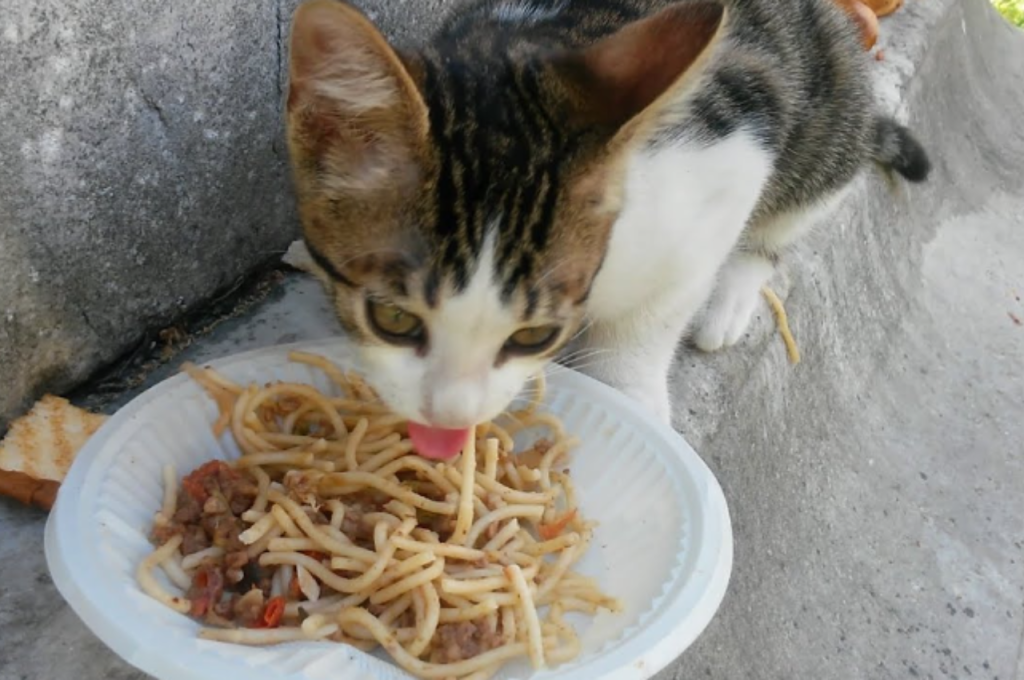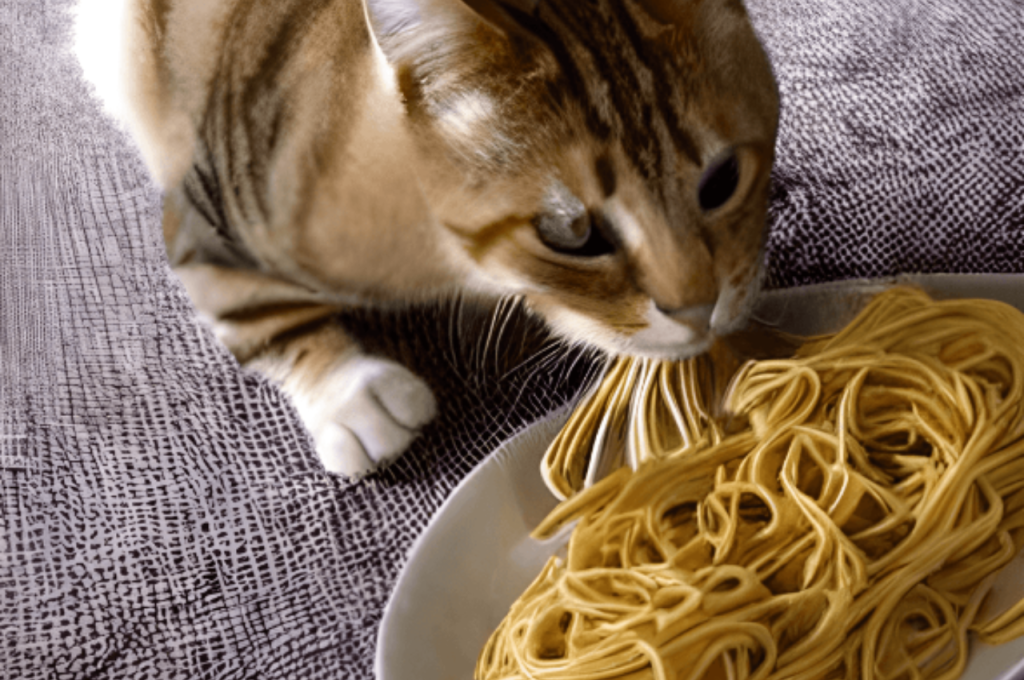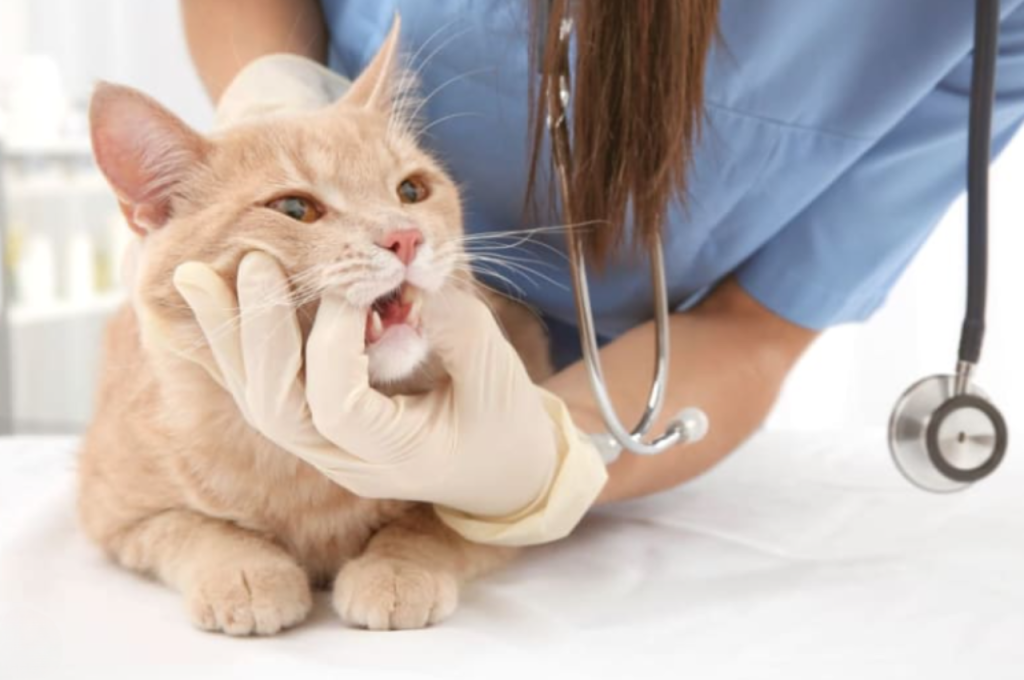Yes, cats can eat noodles in moderation, but it is not an essential part of their diet. Noodles are not harmful to cats if they are plain and cooked without any added ingredients that could be toxic to them.
However, noodles do not provide any significant nutritional value to cats and should not replace their regular cat food. It’s essential to ensure that the noodles are fully cooked and not seasoned with any ingredients like garlic or onion, which can be toxic to cats.
Additionally, feeding noodles to your cat should be done sparingly, as overconsumption can lead to digestive issues due to the high carbohydrate content. Always consult with a veterinarian before introducing any new foods to your cat’s diet.
The Dietary Needs of Cats
Cats have specific nutritional requirements to support their overall health and well-being. The right balance of nutrients is essential to ensure cats maintain a healthy weight, have a strong immune system, and support their various bodily functions. Understanding the dietary needs of cats is crucial for providing them with the appropriate diet.

Nutritional Requirements
Cats require a diet rich in protein, essential amino acids, vitamins, and minerals. Protein is essential for their muscle development and overall growth, while amino acids play a vital role in supporting their bodily functions. Additionally, cats need specific vitamins and minerals like vitamin A, taurine, and calcium to maintain their overall health. Therefore, providing a balanced diet that meets these nutritional requirements is crucial for your feline friend’s well-being.
Cautions for Human Foods
While cats have specific nutritional needs, it’s important to be cautious about introducing human foods into their diet. Some human foods, including noodles, may not provide the necessary nutrients for cats and can even be harmful to their health. Additionally, certain ingredients commonly found in human foods, such as garlic, onion, and xylitol, can be toxic to cats. Therefore, it’s important to avoid feeding cats human foods that may pose potential risks to their health.
Understanding Noodles and Cats
As loving pet owners, we always strive to provide our feline friends with the best diet that suits their specific needs. While cats are known for their picky eating habits, we need to understand what foods they can and cannot consume. One common question that often arises is, can cats eat noodles? In this blog post, we will explore the topic of cats and noodles, shedding light on the different types of noodles and their potential effects on our beloved cats’ health.
Types of Noodles
When it comes to noodles, there is an extensive variety available, each with its composition and nutritional profile. While some noodles, like plain pasta, may appear harmless, others may contain ingredients that could potentially harm your cat. Here are a few types of noodles commonly found:
- Plain Pasta: Made from flour and water, plain pasta without any seasoning or sauce is safe for cats. However, keep in mind that cats require a balanced diet, and offering plain pasta should only be considered an occasional treat.
- Ramen Noodles: Ramen noodles, often cooked in high-sodium broth and containing flavoring packets, are not recommended for cats. The excessive sodium content can lead to dehydration and other health issues for our furry companions.
- Egg Noodles: These noodles, made with eggs and flour, may be safe for cats if cooked plain. However, they should be consumed in moderation as eggs can be high in fat, potentially leading to weight gain.
- Rice Noodles: Rice noodles are a gluten-free alternative that can be safe for cats if cooked plain. However, always ensure that these noodles are thoroughly cooked to avoid any digestive discomfort for your feline friend.
Effects of Noodles on Cats
While some types of noodles can be consumed by cats in moderation, it is crucial to consider the potential effects on their health. Here are a few things to keep in mind:
- Sodium Intake: Cats have low sodium requirements, and excessive sodium consumption from noodles can lead to dehydration and kidney problems. Therefore, it is best to avoid offering your cat noodles cooked in high-sodium broths or flavoring packets.
- Weight Gain: Noodles that contain eggs or are made from high-carbohydrate grains can contribute to weight gain in cats if consumed regularly. It is essential to maintain a balanced diet by providing a variety of foods to prevent obesity and related health issues.
- Food Allergies: Just like humans, cats can have food allergies or sensitivities. If you plan to introduce noodles into your cat’s diet, monitor them closely for any signs of digestive upset or allergic reactions. If such symptoms occur, consult your veterinarian for guidance.
While some types of noodles can be offered to cats as an occasional treat, it is essential to consider their nutritional content and potential effects on your cat’s health. As responsible pet owners, we should prioritize a balanced and species-specific diet that fulfills all their nutritional needs. If you have any concerns or specific dietary requirements for your cat, it is always wise to consult your veterinarian for personalized advice.
Can Cats Eat Noodles?
Cats are curious creatures known for their unique dietary preferences. One common question among cat owners is, ‘Can cats eat noodles?’ Let’s explore the topic to ensure your feline friend’s safety and well-being.
Potential Risks
Eating noodles may pose risks to cats due to their high carbohydrate content, which can lead to obesity.
Moderation and Alternatives
Moderation is key if you choose to feed your cat noodles. Consider alternatives like cooked plain chicken as a safer treatment option.
Health Risks Associated with Noodles
Cats eating noodles can lead to various health concerns such as digestive issues, obesity, and allergies. It’s important to be aware of these risks to ensure your pet’s well-being.

Digestive Issues
– Noodles can cause stomach upset in cats due to their high carbohydrate content. – Digestive issues may include diarrhea and bloating. – Avoid feeding noodles to cats with sensitive stomachs.
Obesity and Allergies
– High-calorie noodles can contribute to obesity in cats. – Obesity increases the risk of various health problems. – Some cats may develop allergies to ingredients in noodles.
Note: Always consult your veterinarian for advice on your cat’s diet and any potential health risks.
Feeding Noodles to Cats
When it comes to feeding our furry friends, it’s important to give them a balanced and nutritious diet that meets their specific dietary needs. While cats are known for being carnivores, many cat owners wonder if they can safely include noodles in their cat’s diet. In this article, we will explore whether cats can eat noodles and the precautions to take when feeding them to our beloved feline companions. Let’s dive in!
Precautions
While cats are primarily carnivores, a small amount of noodles as an occasional treat may not pose any significant harm to their health. However, it’s important to take some precautions to ensure that your cat can safely enjoy noodles:
- Avoid adding seasoning and sauces: Cats have sensitive stomachs, and certain seasonings and sauces used in noodle dishes can cause digestive issues. It’s best to serve plain, unseasoned noodles to your cat.
- Watch for allergies: Some cats may have allergies or sensitivities to certain ingredients found in noodles, such as wheat or gluten. Keep an eye out for any adverse reactions, such as vomiting, diarrhea, or excessive scratching, and consult your vet if you notice any symptoms.
- Moderation is key: Noodles should only be given to cats in moderation, as a small treat, or as part of a balanced meal. Feeding your cat too many noodles can lead to weight gain and other health issues.
Consulting A Vet
If you’re considering adding noodles to your cat’s diet or have any concerns about their nutritional needs, it’s always a good idea to consult with your vet. A veterinarian can provide personalized advice based on your cat’s age, weight, health condition, and dietary requirements. They can help you determine whether noodles are suitable for your cat and provide insights into portion sizes and frequency of serving.
Remember, while noodles may be safe for cats in moderation, they should never replace the main components of their diet, which should primarily consist of high-quality cat food formulated to meet their nutritional needs.
Alternatives for Cat Treats
As loving cat owners, we’re always on the lookout for ways to pamper our feline companions while keeping their health in mind. While traditional cat treats are a popular choice, there are plenty of alternative options that can provide both nutritional benefits and enjoyment for your kitty. In this guide, we’ll explore some healthy alternatives for cat treats that you can incorporate into your furry friend’s diet.
Healthy Snack Options
A nutritious alternative for cat treats includes offering healthy snack options such as cooked noodles without any seasoning.
Homemade Treats
Cats can enjoy homemade treats like boiled chicken or fish for a special treat that is safe and healthy.
Observing Your Cat’s Reactions
When introducing new foods to your cat, observing their reactions is crucial in ensuring their well-being. This is especially important when it comes to feeding them noodles. Keeping an eye on your cat’s behavior and any physical symptoms that may arise can help you determine if noodles are a safe and suitable addition to their diet.
Behavioral Changes
Keep an eye out for any alterations in your cat’s behavior after consuming noodles. Behavioral changes in cats can often indicate discomfort or distress. Look for signs of agitation, restlessness, or refusal to eat. If your cat starts exhibiting unusual behaviors, it may be best to consult with a veterinarian to address any potential issues.
Physical Symptoms
In addition to observing your cat’s behavior, it’s crucial to monitor for any physical symptoms that may occur after consuming noodles. Watch for symptoms such as vomiting, diarrhea, or changes in litter box habits. Additionally, keep an eye on their coat condition and overall appearance for any signs of discomfort or unease.
Final Thoughts and Guidelines
Wondering if it’s safe for cats to eat noodles? While a small amount might be okay, feeding cats noodles regularly isn’t recommended. Stick to their balanced diet for their best health. Remember to consult with a veterinarian before introducing new foods to your feline friend.
Balanced Diet for Cats
Cats require a balanced diet to stay healthy and thrive. While they are obligate carnivores, meaning their main source of nutrition should come from animal-based proteins, it doesn’t mean they can’t eat other foods as well. However, it’s important to ensure that any additional foods, such as noodles, are not replacing the essential nutrients they need from their main diet.
A balanced diet for cats consists of high-quality meat-based cat food that provides all the necessary protein, fat, vitamins, and minerals. This ensures they get the right amount of nutrients to support their overall health and well-being. It’s always best to consult with your veterinarian to determine the right dietary plan for your feline companion.
Caring for Your Feline Companion
Caring for your feline companion involves not only providing them with a balanced diet but also ensuring their overall well-being is tended to. This includes regular vet check-ups, exercise, mental stimulation, and proper grooming. While some human foods may be safe for cats to eat in moderation, it’s essential to be cautious and aware of any potential risks.

When it comes to noodles, it’s important to consider the ingredients and cooking methods. Plain, unseasoned noodles without any harmful additives can be a relatively safe option to offer your cat as an occasional treat. However, keep in mind that cats have different digestive systems compared to humans, so what is safe for us might not be safe for them.
Conclusion
To summarize, while cats can technically eat noodles, it is not recommended as a regular part of their diet. Cats are obligate carnivores and require a diet rich in animal-based proteins. Noodles lack the necessary nutrients and may cause digestive issues or discomfort for cats.
It is always best to consult with a veterinarian to ensure your cat’s dietary needs are being met safely and effectively.
